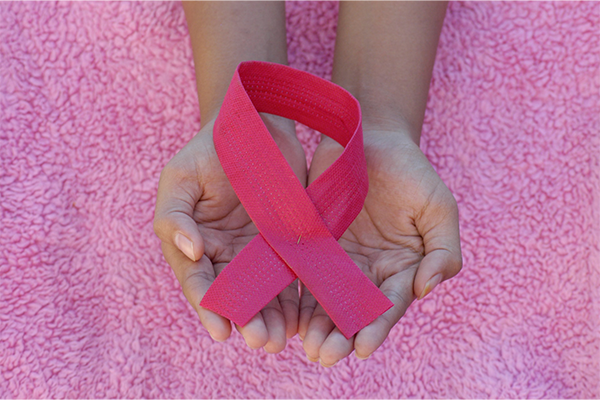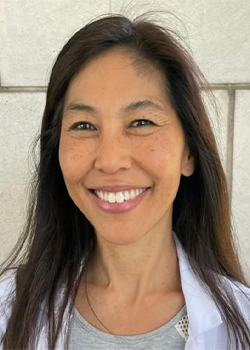
"Triple-negative" breast cancer is the most aggressive subtype of the disease, and it disproportionately affects younger African American females, who show higher incidence and lower survival rates compared to other groups. A new study from Duke University School of Medicine researchers suggests one possible reason why: these younger women may have a subtype that is molecularly distinct.
In an exploratory study that analyzed clinical, demographic, DNA methylation, and gene expression data from publicly available data repositories, investigators found that African American women under age 50 had a unique DNA methylation profile compared to older African American women and to white women of all ages. The results were published October 5, 2023, in the journal JAMA Network Open.
DNA methylation doesn’t alter the underlying DNA sequence, but it can effectively “turn a gene off,” said senior author Maggie DiNome, MD, FACS, professor in the Department of Surgery and chief of the breast surgery section.

"Certain genes in triple-negative breast cancers of younger African American women are differentially methylated and are expressed differently than that of other women, and this appears to affect the aggressiveness of their tumor," DiNome said. "This study shows us that we need to look a little closer at the molecular differences of breast cancers by race and ethnicity and not just assume that triple-negative breast cancer is necessarily the same cancer in all people."
The findings could lead to development of more effective therapies for younger African American females with this disease. "We've seen that socioeconomic factors and treatment factors do contribute to racial disparities in outcomes for patients with breast cancer. But we can't ignore the fact that the biology of a tumor may also be different and that the treatments that we're giving may not work the same for all patients even though they have all been diagnosed with triple-negative breast cancer," said DiNome, a member of Duke Cancer Institute and medical director of breast cancer services for Wake County.
The study was small, including data from 69 women in the United States from the Cancer Genome Atlas and 210 women from the Gene Expression Omnibus. "Very few datasets exist that include DNA methylation and gene expression data as well as clinical and demographic information about patients with triple-negative breast cancer,” said molecular biologist Diego Marzese, PhD, another author of the study. “The Cancer Genome Atlas project is perhaps the only effort that covers all these requirements, and it has been a pillar for this study.”
Triple-negative breast cancers lack receptors for the hormones estrogen and progesterone, as well as overexpression of a protein called human epidermal growth factor receptor 2 (HER-2). As a result, they don't respond to common treatments that target these substances. Most women are treated with chemotherapy, and more recently, immunotherapy.
"Because minority groups have not been well represented in clinical trials in the last several decades, we don't really know whether or not the treatments that we are recommending for everybody work the same for everybody," DiNome said.
Next steps include further study to understand which gene regions specifically are affected by the molecular differences and how this functionally impacts the behavior of triple-negative breast cancer in younger African American women. In addition, because DNA methylation and other "epigenetic modifications" can be influenced by stress, diet, or other factors over the course of a person's lifetime, it would be helpful to identify which factors may be contributing to these alterations in younger African American women, because in theory, epigenetic modifications are reversible, DiNome said.
Future studies ideally would include other information, such as body mass index and menopausal status, to determine the influence of these variables on the molecular profile of triple-negative breast cancer, she said.
DiNome's team is partnering with colleagues at UCLA and Scripps to study triple-negative breast cancer tumor specimens and clinical data from patients at Duke and those two institutions to look at some of those other factors. "There's just not a lot of data available. So we're trying to get more of that data out there," she said.
The researchers will then conduct studies to find out if the distinct gene expression profiles found in younger African American female patients are linked to response to chemotherapy.
A 1994 alum of Duke University School of Medicine, DiNome joined the Duke faculty in 2021 after most recently serving as chief of breast surgery at UCLA.
Marzese coordinated the team led by Miquel Ensenyat and Maria Solivellas that analyzed the data at the Health Research Institute of the Balearic Islands in Palma, Spain. Marzese joined DiNome's lab just two months ago. Now that the collaborators are together at Duke, they aim to accelerate the pace of their work to better understand the epigenetics of breast cancer.